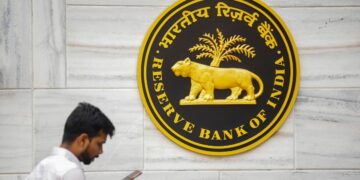The option of FD for fixed income is an evergreen option. In this, you get returns based on a fixed interest rate on a fixed amount. You can get FD done in a bank. If you want, you can also choose the option of corporate FD. Yes, you get relatively higher interest in corporate FD as compared to bank FD, but before deciding to invest in it, you must do some important homework, so that you do not have any confusion regarding investment. Let us discuss some such things here so that you can get help in taking a decision.
Check your tax status before investing
Tax status matters in corporate FDs. Fixed deposit investment is an instrument that offers high returns, but there is no tax benefit if the tenure is less than 5 years. That is, if you are in the 30% tax bracket, you pay tax at the rate of 30% on the interest earned on corporate FDs.
Check the financial position of the company
Investors should not be attracted by high interest rates alone. It is always best to do your homework. Before investing in a corporate fixed deposit, assess the company’s credit rating. AAA rating is the highest possible rating that can be assigned by any major credit-rating agency. According to SBI Securities, you can also do some basic due diligence apart from the credit rating. Check the track record of consistent profits and focus on companies with high profit margins and high ROE. They are less likely to default.
Do you have any problem in locking the funds?
While some short-term corporate FDs offer flexibility of tenure, if you are investing for the long term, it is always best to be cautious on the quality of the FD. Liquidity levels are low in case of corporate FDs. So if you are committed to long-term investing, it is best practice to allocate only to funds that you can comfortably lock in. And though premature withdrawal is an option, it should be the last resort.
Check the returns offered and the need
Returns in investments should never be looked at in isolation. For any company offering high returns, also look at the context in which it operates, i.e., take into account the various factors that may influence these returns. Examine whether you want flexibility and hence opt for a shorter term FD at a slightly lower interest rate, or you would prefer to lock-in some amount for greater returns with a higher interest rate offered in a longer term FD.
Don’t forget the risk factor
Like any other investment, when it comes to investing in FDs, you must assess the different types of risks. Compared to bank FDs, corporate FDs carry relatively higher risk, but then, it comes with higher interest rates and thus higher returns. The risk in FD investments is not just about defaults. There are other risks as well, such as inflation risk and reinvestment risk. FDs also carry interest rate risk.
Understand the context of your financial plan
It is important to understand the context of your financial planning. Your FD investment or any investment in company FDs should fit into your overall financial plan for it to be meaningful to you.
Latest Business News






